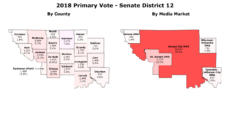Workers living outside of St. Louis are seeking refunds for an earnings tax levied by the city during their time working remotely during the COVID-19 pandemic.
Attorneys Bevis Schock and Mark Milton filed a class-action lawsuit against the city to allow non-residents to get a refund for the 1 percent tax from their time spent teleworking, arguing the tax was applied “for work done or services performed or rendered in the city.” The lawsuit was filed on behalf of four workers who were turned down for refunds, two of whom live in St. Charles County while the others are St. Louis County residents.
The lawsuit alleged the city has issued refunds for taxes that were withheld but not owed before 2020 if the worker submitted a request, but the city told those applying for refunds for the 2020 tax year they would not receive one if their employer continued to operate within the city limits.
The lawsuit said the city failed to publicly announce the policy change to taxpayers and the protest deadline was moved to May 17 — something the lawsuit said was a full year ahead of the typical statute of limitations. The lawsuit said the change violated the plaintiffs’ constitutional rights and sought declaratory and injunctive relief.
“Defendants’ conduct in denying nonresidents refunds for time when work was performed or services were rendered outside the city, which they have always received in prior years, shocks the conscience and violates plaintiffs’ Fourteenth Amendment right to substantive due process,” the lawsuit said. “Further, defendants’ change of policy for tax year 2020 regarding teleworking, without any change to the earnings tax ordinance itself, and with plaintiffs’ money already in their hands, is an arbitrary distinction without rational basis and violates plaintiffs’ Fourteenth Amendment right to equal protection.”
The lawsuit also pointed to Missouri’s Hancock Amendment, which prohibits political subdivisions from increasing the levy on or changing the base definition of an existing tax. The lawsuit argued the policy change did so without approval from voters.
The case was heard by a St. Louis Circuit judge last week.
Attorney David Luce, who represents the city, cited a previous tax case that concluded Missouri statute disallowed class action challenges and required taxpayers to file individual lawsuits to seek refunds. He also said the change was brought about by the pandemic to keep the city’s budget from losing the revenue, which St. Louis Collector of Revenue Gregory Daly’s office said accounted for one-third of the city’s budget and funded emergency services.
“It goes without saying that the unprecedented coronavirus pandemic has forced a lot of changes on us all,” Daly said in a statement. “If you live outside of the city limits and your employer continues to operate within the city limits, you will be required to pay the earnings tax even if your employer permits you to work virtually.”
Luce did not immediately respond to a request for comment.
The city filed a motion to dismiss the suit, but Circuit Court Judge Christopher McGraugh has yet to move on the case.
Taxpayers are still allowed to apply for a refund for days spent traveling outside of the city for work, according to Daly’s office.
The 1 percent earnings tax was renewed for five years by St. Louis voters during the April election. The city estimated nearly $178 million in revenue from the tax for the 2022 fiscal year, a drop from the $188.5 million estimated for FY 2021.

Cameron Gerber studied journalism at Lincoln University. Prior to Lincoln, he earned an associate’s degree from State Fair Community College. Cameron is a native of Eldon, Missouri.
Contact Cameron at cameron@themissouritimes.com.






















